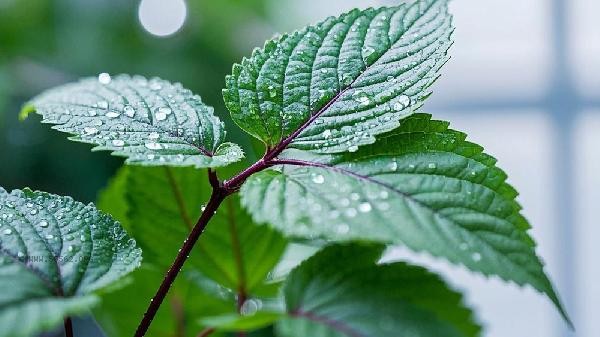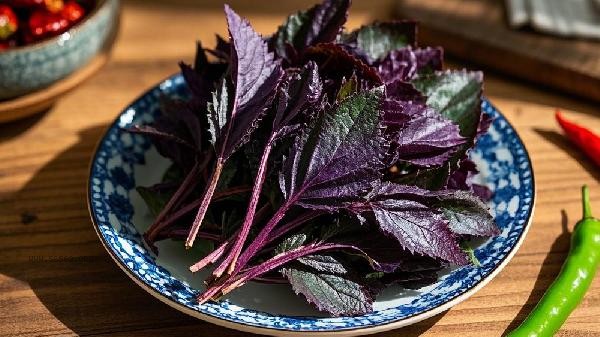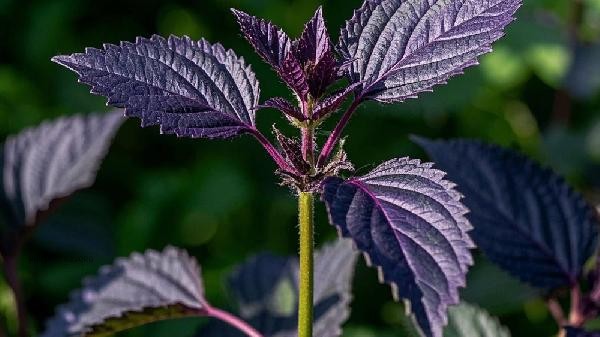Eight groups of people, including those with yin deficiency and excessive heat, qi deficiency and excessive sweating, spleen and stomach deficiency and cold, pregnant women, allergic constitution, early stage patients with wind cold and cold, hemorrhagic disease patients, and postoperative recovery patients, should not eat perilla. Perilla leaves should not be consumed when they become moldy, spoiled, or contaminated with pesticides.

1. Yin deficiency and fire excess
Yin deficiency and fire excess individuals have insufficient Yin fluid in their bodies, often manifested as dry mouth and tongue, hot flashes, and night sweats. Zisu Wenxin San may exacerbate symptoms of yin deficiency. This group of people can use traditional Chinese medicinal herbs such as Ophiopogon japonicus and Dendrobium officinale to nourish yin and reduce fire, and avoid consuming spicy and warm foods.
2. Qi deficiency and excessive sweating
Qi deficiency and excessive sweating may worsen the symptoms of spontaneous sweating due to insufficient yang defense. It is recommended that this group of people choose medicinal herbs such as Astragalus membranaceus and Atractylodes macrocephala to replenish qi and strengthen the surface. They can also drink floating wheat tea in their daily lives to control sweating.
3. Patients with spleen and stomach deficiency and cold
Patients with spleen and stomach deficiency and cold often experience bloating and diarrhea, and the pungent properties of perilla may stimulate the gastrointestinal mucosa. This group of people should consume ginger and jujube as warm and cold dispersing ingredients. For severe cases, they can follow the doctor's advice to use Fuzi Lizhong Wan for conditioning.
4. Pregnant women
Perilla frutescens contains volatile oil components that may stimulate uterine smooth muscle. Pregnant women, especially in the early stages of pregnancy, should use caution and can choose safe pregnancy herbs such as mulberry parasites and Eucommia ulmoides. Perilla seed oil is also not recommended for pregnant women to consume in large quantities.

V. Allergic constitution
Perilla contains allergenic ingredients such as perilla aldehyde. Allergic constitution may experience symptoms such as skin itching and respiratory edema when consuming it. It is recommended for first-time consumers to try a small amount. If there is an allergic reaction, stop using immediately and seek medical attention.
6. Patients with early stage of wind cold cold cold
In the early stage of wind cold cold cold, sweating is necessary to relieve the symptoms, but perilla has strong sweating ability, and excessive use may lead to excessive sweating and damage to the yin. Suggest pairing with scallion white, ginger, and other ingredients to avoid consuming large amounts of perilla alone.
7. Patients with hemorrhagic diseases
Perilla frutescens has a blood activating effect, and its consumption may exacerbate bleeding tendencies in patients with hemophilia, thrombocytopenia, and other conditions. This group of people should avoid consuming blood activating medicinal herbs, and if necessary, consult a traditional Chinese medicine practitioner to adjust their diet plan. During the postoperative recovery period, if the wound is not completely healed, the blood activating effect of perilla may affect coagulation function. It is recommended to avoid consumption within 1-2 weeks after surgery. It can be gradually added after the recovery period, but the daily dosage should be controlled within 3 grams.
When purchasing perilla in daily life, it is important to ensure that the leaves are intact and free of mold, and wild perilla should be confirmed to be free from pesticide contamination. When storing, it should be placed in a cool and ventilated place, and fresh products are recommended to be consumed within 3 days. Individuals with special constitutions can consult a traditional Chinese medicine practitioner before consumption, and use other medicinal herbs to neutralize the effects based on their constitution. Perilla frutescens, as a medicinal and edible ingredient, can only exert its effects of relieving surface coldness, promoting qi circulation, and affecting the stomach when used reasonably.










Comments (0)
Leave a Comment
No comments yet
Be the first to share your thoughts!